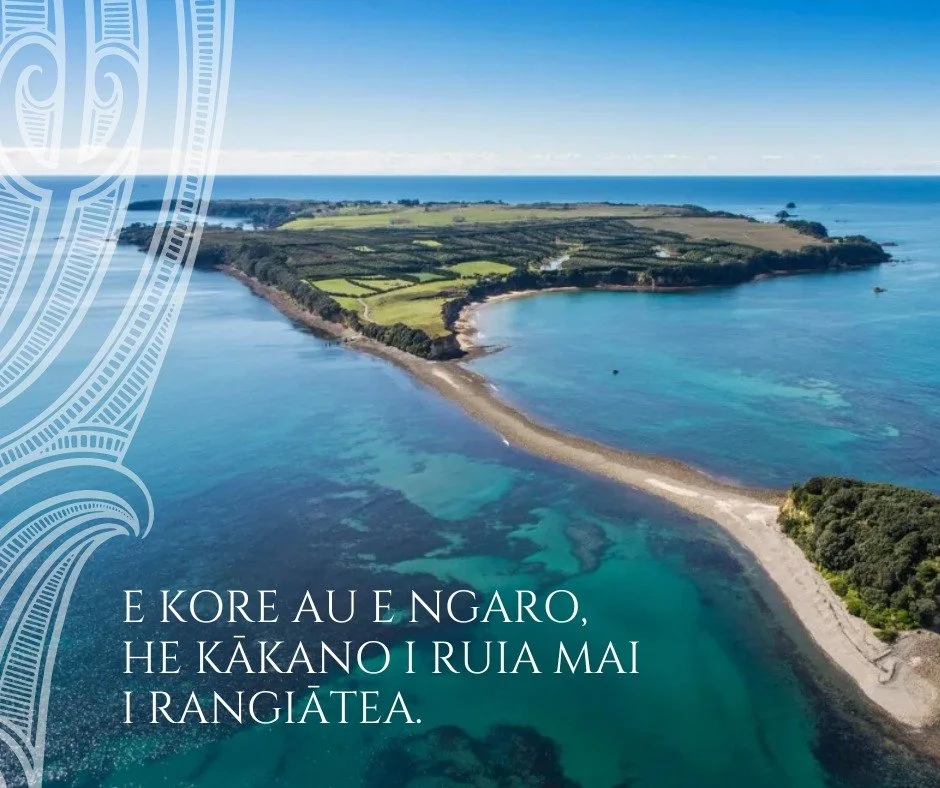
Takutai Moana - Marine And Coastal Area Act: Waitangi Tribunal Report
In August, 2024, Rūnanga Manahautū Reuben Araroa was a strong and confident leader when he presented to the Waitangi Tribunal in the urgent hearing into the proposed changes to the Marine and Coastal Area (Takutai Moana) Act 2011 and reasserted the Ngāti Awa opposition to the changes to the legislation.
Reuben travelled to Pōneke to speak to the evidence that he had submitted to the tribunal on behalf of Te Rūnanga o Ngāti Awa. Supported by Counsel, Reuben reiterated that the proposed changes had an agenda with an intent that undermines the relationship between not only Ngāti Awa and the Crown, but all iwi across the motu.
“I am here to state on behalf of Ngāti Awa that we oppose the changes to the legislation. And I am also here to recognise the mana and authority of my pakeke who have walked this journey before me and the efforts they continue with towards the longevity of Ngāti Awa.”
The Government plans to overturn a Court of Appeal decision that made customary titles easier to get. Under this proposed change, some iwi with cases heard already will need to have them reheard. And so, the Waitangi Tribunal is holding an urgent hearing before the legislation is introduced to Parliament.
Previously, the Rūnanga made an application under the Act with a preference to resolve its substantive matters with a hearing set down for 10 weeks starting May 5, 2025. However, its application is unique in that it overlaps with two priority applications under the act including Edwards (Te Whakatōhea) to the east and Reeder (Ngā Pōtiki) in the west and so it has already been in court continuing to assert our mana to our taonga.
In communications from the Manahautū following the release of the Tribunal’s report, he says legal counsel for the iwi had conveyed that it was excellent.
Reuben says in the counsel’s assessment, the Tribunal makes clear its view that Crown has breached Te Tiritio Waitangi with respect to its process and the suggested substantive amendments to the MACA Act. It found that, as a result of Crown breaches, Māori will, or are likely to, suffer prejudice as:
The takutai moana is a significant taonga but the proposed amendments have not been subject to robust well-designed transparent policy process (or policy rationale);
Māori have not been given the opportunity to engage as Treaty partners, and to exercise their tino rangatiratanga, on such a significant issue;
The Crown is seeking to restrict the ability of Māori to have their rights recognised through an award of CMT, when there is no identified public right or interest that requires protection, and when there has been no balancing exercise taking into account Māori rights and interests in the takutai moana;
The Crown seeks to amend the MACA Act so drastically, without any evidentiary basis for doing so, while ignoring the advice of officials, and choosing to pre-empt the Supreme Court on the matter (this is in reference to the Supreme Court hearing that Ngati Awa is participating in – Edwards / Te Whakatōhea set down for November; and
Māori applicants affected by the retrospective application of the amendments will suffer harm from having to go through a rehearing process when they have already participated in extensive hearings in good faith.
Ultimately, the Tribunal recommends that:
The Crown halts its current efforts to amend the MACA Act; and
The Crown makes a genuine effort for meaningful engagement with Māori (noting the focus of this engagement should be on the perceived issues of permissions for resource consents, rather than interrupting the process of awarding CMTs).
Reuben says our legal counsel has advised that their view that the Runanga’s evidence was clearly helpful for the Tribunal in its analysis. The Tribunal was particularly concerned about those applicant groups who had already participated in weeks of hearings and those who would have potentially different tests apply within the same rohe; both of these concerns were highlighted in our evidence as both situations arise for us.
Reuben says the Report concludes with a warning to the Crown that its current course will significantly endanger the Māori–Crown relationship and its actions are a gross breach of the Treaty that, if it proceeds, the amendments would be an illegitimate exercise of kāwanatanga.
He says the Rūnanga will continue to monitor the Crown’s response and our legal team is continuing its work in the background in relation to our substantive claims under the MACA Act.


